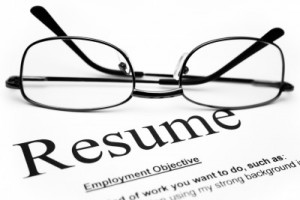
Most importantly, you have to tell the truth. Think of yourself as Pinocchio. Sure, embellishing your duties here and there might seem like no biggie. This particular interviewer might not call up your references and ask. That added skill that you don’t really have might not be needed for this job…but what if they do call? What if that skill’s needed? Adding to your resume might help get you an interview—or even the gig—but at the end of the day, it isn’t worth it. Knowing you lied might trip you up during the interview, especially if they call into question what you wrote (not that they’ll think you’re lying necessarily, they just need to know more sometimes). Honesty is really the best policy for jobs.
If you don’t have a lot of experience or feel like a particular internship didn’t give you a lot of responsibilities, don’t sweat it. Resumes should be limited to one page. Honestly, we’re in college—if you have that much more than a page worth of stuff to tell in a resume, I applaud you. Stick to the most relevant experiences you’ve had. Even if it was an award you won in high school or a major accomplishment, it can stay on—though eventually you’ll cut those things off as you grow in experience and more related qualifications. Instead of lying to fill out your one page, you can also discuss classes you’ve taken that are pertinent to the position. If you want to be a web design intern, add on your web design class. But also be weary of tacking on your whole schedule. Be choosy about what you list on your resume, and keep the unrelated or unhelpful off the page if possible.
In addition to being choosy about the positions you include, you have to be choosy about how you sell yourself. Your interviewer wants to get to know you—but in a work-based sense. Meaning keep your life story out of your resume! If you had a life changing trip to another country, great for you. But it doesn’t necessarily have to be on the page (unless you can add “speaks Italian” to your skill set or gained some kind of related experience while abroad). You don’t need to include a head shot, your random hobbies or even your likes about a particular internship. These things can come up in the interview—if they’re worthwhile—and that kind of talk can be saved for in-person.
The resume is all about the basics: who’d you work with, where did you work , when were you working there, what did you do there with a touch of why you’re qualified for the new position you’re interviewing for. For every internship or job you list, make sure to include all those details. Have at least three bullets for each describing—with action verbs, like “Researched this” and “Wrote that”–some, if not all, of your responsibilities. Include a skills section for specialties, like Adobe InDesign or html or any languages you may know. Don’t forget to have a section for your education, not just the school but possibly your GPA, if you’re on the dean’s list or anything that helps you stand out. You can also have an honors and awards section, which may include scholarships, any awards you’ve won, or any mentions of excellence. Every accomplishment, no matter how seemingly trivial, counts and can make the difference between you and another applicant.
At the end of the day, a resume is a sheet of paper. Yes, it is important and yes, you should spend the time and energy to make it look and sound nice and professional. But you in person is worth more than you on paper. So don’t sweat it if you don’t have any awards to your name or your skill set appears limited. Put yourself out there, let your personality shine in your interviews and don’t just let your resume do the talking.
– ToonyToon